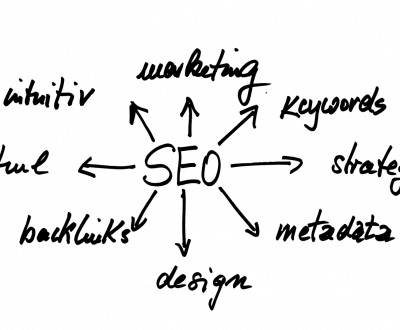The Evolution of Google Algorithms and Core Updates: A Comprehensive History
- December 7, 2023
- Algorithm Updates and SEO, Algorithm Updates and SEO News
Table of Contents:
- Introduction
- The Early Days: Birth of Google Algorithms
- Milestones in Algorithm Evolution
- PageRank: The Foundation
- Panda, Penguin, and Other Animals: Major Updates
- Mobilegeddon and Mobile-First Indexing
- BERT and the Rise of Natural Language Understanding
- Understanding Core Updates
- FAQ: Frequently Asked Questions
- Conclusion
The evolution of digital search, the history of Google algorithms and core updates stands as a testament to the search engine giant’s quest for precision and relevance. From the inception of PageRank to the advent of BERT and beyond, these advancements have shaped how websites are ranked, influencing the digital marketing sphere profoundly. Exploring this journey illuminates the significance of adapting to Google’s algorithmic changes and understanding the pivotal role they play in online visibility and SEO strategies.
The Evolution of Google Algorithms: Navigating the Digital Shifts
The Early Days: Birth of Google Algorithms
- Introduction to Larry Page and Sergey Brin’s PageRank concept
- The fundamental principles of early algorithmic functions
Milestones in Algorithm Evolution
- PageRank: The Foundation
- Unveiling the PageRank algorithm and its impact on search
- Initial effects on website ranking and search engine optimization
- Panda, Penguin, and Other Animals: Major Updates
- An exploration of significant updates and their objectives
- The effects of Panda, Penguin, and subsequent algorithmic shifts
- Mobilegeddon and Mobile-First Indexing
- The rise of mobile-centric indexing and its implications
- Adapting websites for mobile compatibility and user experience
- BERT and the Rise of Natural Language Understanding
- Understanding the role of BERT in contextual search
- Enhancing content strategies to align with natural language processing
Understanding Core Updates
- Defining core updates and their significance in SEO strategies
- Impact assessment and adaptation strategies for core updates
FAQ: Frequently Asked Questions
PageRank pioneered Google’s algorithm, assessing website relevance based on backlinks.
Mobilegeddon prioritised mobile-friendly sites, affecting rankings for non-mobile optimised pages.
Core updates are significant, broad changes impacting site rankings and overall search results.
BERT enhanced Google’s understanding of natural language, refining search query interpretations.
Adapting involves quality content creation, user-centric design, and adherence to SEO best practices.
Timeline of Algorithm & Google Core Updates
- Google Panda (February 2011): Targeted low-quality content, penalizing sites with thin or duplicated content.
- Google Penguin (April 2012): Focused on penalizing sites engaging in manipulative link-building practices.
- Google Hummingbird (August 2013): Emphasized semantic search and understanding user intent.
- Google Pigeon (July 2014): Altered local search results and improved distance and location ranking parameters.
- Google Mobile (April 2015): Prioritised mobile-friendly websites in mobile search results.
- Google RankBrain (October 2015): Utilized AI to better understand search queries and deliver relevant results.
- Google Possum (September 2016): Refined local search results, particularly affecting local businesses’ rankings.
- Google Fred (March 2017): Targeted low-quality content and aggressive monetization tactics.
- Google Medic (August 2018): Affected health and wellness sites, emphasizing expertise, authority, and trustworthiness (E-A-T).
- Google BERT (October 2019): Improved natural language understanding, considering context in search queries.
- Google May 2020 Core Update (May 2020): Broad changes impacting search results across various niches.
- Google December 2020 Core Update (December 2020): Another significant update impacting search results globally.
- Google June 2021 Core Update (June 2021): Focused on improving relevance and quality in search results.
- Google July 2021 Core Update (July 2021): Aimed at refining core ranking algorithms.
- Google September 2021 Core Update (September 2021): Another major update affecting search rankings.
- Google November 2021 Core Update (November 2021): A significant update impacting search results.
- Google December 2021 Product Review Update
- Google February 22, 2022 Page Experience Update
- Google March 2022 Product Algorithm Update (Google March 2022):
- Google May 2022 Core Update (Google May 2022):
- Google July 2022 Product Reviews Update (Google July 2022):
- Google August 25 2022 Helpful Content Update (Google August 25 2022):
- Google September 12 2022 Core Algorithm Update (Google September 12 2022)
- Google September 20 2022 Product Review Algorithm Update (Google September 20 2022)
- Google October 19 2022 (Google October 19 2022): Spam Update
- Google December 5 2022 (December 2022): Helpful Content Update
- Google December 2022 Link Spam Update: (Google December 2022)
- Google February 2023 Product Reviews Update: (Google February 2023)
- Google March 15 2023 Core Update (Google March 15 2023)
- Google April 2023 Reviews Update: (Google April 2023)
- Google August 2023: Core Update (Google August 2023)
- Google September 2023: Helpful Content Update (Google September 2023)
- Google October 2023 Spam Update (October 2023): This update applies globally and improves coverage in many languages, preventing Spam.
- Google October 2023 Core Update (October 2023):
- Google November 2023 Reviews Update (November 2023): Targeting review content on a page-level basis.
- Google November 2023 Core Update. (November 2023): Google announced a core algorithm update.
Conclusion
- Summarizing the evolutionary journey of Google algorithms and core updates
- Emphasizing the importance of staying informed and adaptable in the dynamic world of SEO.
Google Updates News
Google provides a full description to it’s Core Updates and Algorithmn updates. Guidelines to the reasons and potential affects it will have on websites rankings or future.
Content Below provided by Google from the google developers documents
Google Search’s helpful content system and your website
Google Search’s helpful content system generates a signal used by our automated ranking systems to better ensure people see original, helpful content created for people in search results. This page explains more about how the system works, and what you can do to assess and improve your content.
How the helpful content system works
The helpful content system aims to better reward content where visitors feel they’ve had a satisfying experience, while content that doesn’t meet a visitor’s expectations won’t perform as well.
The system generates a site-wide signal that we consider among many other signals for use in Google Search (which includes Discover). The system automatically identifies content that seems to have little value, low-added value or is otherwise not particularly helpful to people.
Any content—not just unhelpful content—on sites determined to have relatively high amounts of unhelpful content overall is less likely to perform well in Search, assuming there is other content elsewhere from the web that’s better to display. For this reason, removing unhelpful content could help the rankings of your other content.
This classifier process is entirely automated, using a machine-learning model. It works globally across all languages. It is not a manual action nor a spam action. Instead, it’s just one of many signals Google evaluates to rank content.
This means that some people-first content on sites classified as having unhelpful content could still rank well, if there are other signals identifying that people-first content as helpful and relevant to a query. The signal is also weighted; sites with lots of unhelpful content may notice a stronger effect.
If you host third-party content on your main site or in your subdomains, understand that such content may be included in site-wide signals we generate, such as the helpfulness of content. For this reason, if that content is largely independent of the main site’s purpose or produced without close supervision or the involvement of the primary site, we recommend that it should be blocked from being indexed by Google.
What does this system and updates to it mean for my site?
If you’re producing helpful content, then you don’t need to do anything; in fact this system may be good for your site, as it is designed to reward helpful content.
If you’ve noticed a change in traffic you suspect may be related to this system (such as after a publicly-posted ranking update to the system), then you should self-assess your content and fix or remove any that seems unhelpful. Our help page on how to create helpful, reliable people-first content has questions that you can use to self-assess your content to be successful with the helpful content system.
A natural question some will have is how long will it take for a site to do better, if it removes unhelpful content? Sites identified by this system may find the signal applied to them over a period of months. Our classifier runs continuously, allowing it to monitor newly-launched sites and existing ones. As it determines that the unhelpful content hasn’t returned in the long-term, the classification will no longer apply.
Periodically, we refine how the classifier detects unhelpful content. When we do this in a notable way, we share this as a “helpful content update” on our Google Search ranking updates page. After such an update finishes rolling out, and if the refined classifier sees that content has improved, then the unhelpful classification from our previous classifier may no longer apply.
Google are on X
If you’d like to support and show your appreciation to Google then follow their social media account on the popular platform X, previously called Twitter. @googlesearchc
Google Podcast
Sit back and enjoy the Google podcast “Search off the record” with behind the scenes. Recent podcasts include:
Which aspect of my site should I focus on?
In this episode of Search, Martin, Gary, and John discuss aspects of SEO that website owners often overlook. From overall quality to more technical aspects, The Search team talks about where they focus on their SEO work and why the details add up to a better SEO experience. Resources: Episode transcript → https://goo.gle/sotr066-transcript Search Off the Record is a podcast series that takes you behind the scenes of Google Search with the Search Relations team. #SOTRpodcast
Features and deprecations on Steve
In this episode of Search, John, Gary, and Martin discuss why the search team adds and removes features on their search engine, Steve. From creating a better user experience to surfacing relevant answers for search queries, maintaining an organized webspace requires continual retooling. Tune into this episode of Search Off the Record to learn about what the team considers when updating their search engine itself! Resources: Episode transcript → https://goo.gle/sotr065-transcript Search Off the Record is a podcast series that takes you behind the scenes of Google Search with the Search Relations team. #SOTRpodcast
The effect of quality on Search
In this episode of Search, John and Gary discuss the impact of quality on search results. From sitemaps to scheduling and more, the Google Search team talks about how the quality of the page and site plays a role in crawling and indexing, besides ranking. Do you need to update your site often or add many links? Tune in and find out on this episode of Search Off the Record! Resources: Episode transcript → https://goo.gle/sotr064-transcript Search Off the Record is a podcast series that takes you behind the scenes of Google Search with the Search Relations team. #SOTRpodcast
Let’s talk ranking updates
The Google Search algorithm has been updated and panic quickly sets in. In this episode of Search, Martin, John, and Danny help content creators everywhere focus on the value they bring into the digital world. From changing ranking systems to updated documentation, the Google Search team discusses their holistic approach to SEO, ranking, and more! Resources: Episode transcript → https://goo.gle/sotr063-transcript Search Off the Record is a podcast series that takes you behind the scenes of Google Search with the Search Relations team. #SOTRpodcast
Check out the most important SEO podcast any potential SEO or web designer should be listening and monitoring as it’s news direct from the creators and brains of Google. #SOTR
About us and this blog
We are a digital marketing company with a focus on helping our customers achieve great results across several key areas.
Request a free quote
We offer professional SEO services that help websites increase their organic search score drastically in order to compete for the highest rankings even when it comes to highly competitive keywords.
We offer a FREE Website Audit. No Charge, No Catch, simply add your website, the email address to send report. We will send you a website audit report highlighting any website issues, broken links, alt tags missing, duplicate titles etc along with a Google Analysis of your content.
Recent Posts
All Website Tags
- Advanced SEO Analytics
- AI and Machine Learning in SEO
- Algorithm Updates and SEO
- Algorithm Updates and SEO News
- Alt Text (Alternative Text)
- Analytics and Insights
- Anchor Text
- Audit
- Backlink Monitoring and Management
- Backlinks
- Black Hat SEO
- Brand Awareness
- Canonical URLs
- Content Creation Chronicles
- Content Marketing
- Content Marketing Corner
- Content Marketing for SEO
- copywriting
- CTR (Click-Through Rate)
- Digital Authority
- Digital Diagnostic
- Digital Diagnostic for SEO
- Digital Health Assessment
- Digital Marketing Trends
- Domain Authority DA
- Duplication
- E-Commerce SEO
- Email Marketing Mastery
- External Linking
- Google Core Update
- Google My Business GMB
- Heading Tags (H1, H2, H3, etc)
- Healthcare SEO Strategies
- Indexing
- Internal Linking
- Internal Linking Strategies
- International SEO Strategies
- Keyword Analysis and Optimisation
- Keyword Research and Analysis
- Keywords
- Link Building
- Link Building for SEO
- Link Building Strategies
- Link Building Techniques
- Link Building Tools and Tips
- Local SEO Spotlight
- Local SEO Strategies
- Market Research
- Marketing
- Marketing Mix
- Meta Tags (Title, Description)
- Mobile SEO
- Off-Page Optimisation
- Off-Page SEO
- On-page SEO
- Online Audit Insights
- Online Audit Insights for SEO
- Optimise Your SEO
- Optimise Your Website
- Organic Traffic
- Page Authority
- Page Load Speed
- Paid Search (PPC)
- Ranking
- Reputation Management and Online Branding
- Search Engine Optimising Service
- Search Ranking Analysis
- SEO
- SEO Analytics and Reporting
- SEO Diagnostic Lab
- SEO Evaluation Toolkit
- SEO for Beauty
- SEO for Blogs and Content Platforms
- SEO for Hair Salons
- SEO for Spas
- SEO for Startups
- SEO for WordPress Websites
- SEO Health Assessment
- SEO Health Check
- SEO Performance Checkup
- SEO Success Secrets
- SERP
- Site Performance Analysis
- Social Media Integration for SEO
- Social Media Strategies Unveiled
- Target Audience
- Technical SEO
- Technical SEO Demystified
- Video SEO for YouTube
- Web Presence Checkup
- Website Health Check
- White Hat SEO









